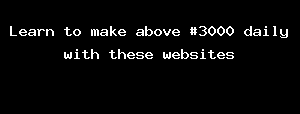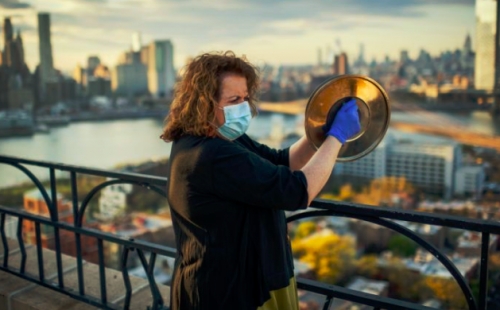News And PoliticsCommunications And EntertainmentSports And FitnessHealth And LifestyleOthersGeneralWorldnewsBusiness And MoneyNigerianewsRelationship And MarriageStories And PoemsArts And EducationScience And TechnologyCelebrityEntertainmentMotivationalsReligion And PrinciplesNewsFood And KitchenHealthPersonal Care And BeautyBusinessFamily And HolidaysSportsStoriesIT And Computer ScienceRelationshipsLawLifestyleComedyReligionLifetipsEducationMotivationAgriculturePoliticsAnnouncementUSMLE And MedicalsMoneyEngineeringPoemsSocial SciencesHistoryFoodGive AidBeautyMarriageQuestions And AnswersHobbies And HandiworksVehicles And MobilityTechnologyFamilyPrinciplesNatureQuotesFashionAdvertisementChildrenKitchenGive HelpArtsWomenSpiritualityQuestions AnsweredAnimalsHerbal MedicineSciencePersonal CareFitnessTravelSecurityOpinionMedicineHome RemedyMenReviewsHobbiesGiveawayHolidaysUsmleVehiclesHandiworksHalloweenQ&A
Top Recent
Loading...
You are not following any account(s)
profile/9782Snapchat-809832875.jpg
Manizz

More Sunday Funny Pics
~2.8 mins read
This year, 2020, is probably the most hectic year in history. 2020 taught me these three lessons, in fact, not only me but the whole south Africa learned these lessons. Last week I learned that Dlala Mshunqisi is not only good at yelling but that guy can really run in fact Dladla Mshunqisi can outrun Caster Semenya.
Lockdown taught me that there is no such thing called a strong relationship; it's all in President's favor. Social distancing has swallowed thousands of relationships including mine, with that being said, there is no such thing called a strong relationship.
In 2020 I have learned that 500 billion is nothing. But most importantly I have learned that without unity we are weak. Last week the minister of health said that the number of coronavirus cases has dropped in level three of lockdown and the recoveries have risen up to 84%, which is something that is indeed promising.
Thanks to all the frontline workers and to all the South Africans who have been so committed to playing part in reducing the number of coronavirus infection, you guys deserve a little bite on your noses like this, tell me how sweet is that.
profile/649IMG_20200809_171013_2-1.jpg
CeeJay

Learn To Make Above #3000 Daily With These Websites
~2.9 mins read
Learn to make above #3000 daily with these websites
Below will will show you the best websites you can use to make money online. This websites listed here can be used to make above #3000 Naria daily. All you have to do is simply completing few simple tasks. Like referring friends,watching videos or order small tasks.
1.Coinbase
Do you know you can earn cryptocurrency for free then try coinbase. Coinbase is an online cryptocurrency market place where people buy and sell cryptocurrencies.Coinbase allows it's users to earn cryptocurrencies while learning about them.All you have to do to earn the cryptocurrency is by simple completing some simple educational tasks like watching a short video about a cryptocurrency and how it works, lessons and quizzes. With coinbase you can earn above $30 dollar worth of cryptocurrency. With this platform you can earn cryptocurrency by just learning about them.
2. Onepoll
If you don't want to earn crytocurency then try Onepoll. Onepoll is a surveying site that pays user's to answer some questions. With Onepoll you can earn money by simply answering survey questions, watching videos and also shopping. Also Onepoll pays you £1 pounds for every refer you make.Therefore if you can refer up to 10 people a day you will be making £10 pounds daily. Signing up with Onepoll is free and very easy and you will also receive a £2.5 pounds for completing your registration.
3.Swagbucks
Swagbucks is a website that offers users reward points for simple doing little online tasks like watching videos, searching the web and completing survey. You can earn money in swagbucks when you complete surveys, watch videos and even play games. Swagbucks pays you up to $1 dollar for simply referring a friend. Therefore if you can refer up to 10 people a day you will be making £10 pounds daily.Other ways you can earn money with swagbucks includes completing daily tasks,making swagbucks your default browser and also downloading apps.
Swagbucks gives you $5 dollars for simple signing up.
4.Opay
Opay is an app that allows you make transfer, withdraws and also allows you to pay bills. To make money with opay you must first create an opay account after creating an opay account opay will pay you #50 Naria for every referral you make. If you can refer up to 30 people a day you will be making #1500 daily.
5.Fiverr
This is also a popular website that can be helpful for freelances. Know something about digital animation? You can work for someone who doesn't have these skills and pick up some extra cash. Even better, you can offer to compile web research for someone for fast cash. The only caveat: You probably aren't going to get rich quickly by taking on these jobs. The website's tagline is, "Freelance services for the lean entrepreneur," and its name comes from the fact that many people work for $5 per task (yes, you can ask for more). With that said, if you get a lot of gigs, you can get paid a significant sum in the long term.
Please if this article helped you feel free to share, like comment and follow thanks.
profile/1937Screenshot_20220413-132311_Instagram.jpg
Caster

The Woman Who Predicted The Corona Virus! Her Next Vision
~7.5 mins read
profile/929henry.jpeg
Victor3

If You Want To Live Long, Stop Eating Too Much Of These 3 Things, The Can Damage Your Health
~2.0 mins read
If You Want To Live Long, Stop Eating Too Much Of These 3 Things, The Can Damage Your Health
It is the wish and desire of everyone to live a long and healthy life before dying but very few people know what it really takes to live up to that desired age range. In this article, I will be discussing some of the foods that can shorten your lifespan when you consume too much of it.
Aging comes with many responsibilities hence, there are certain things you do when you are younger that you need to give up once you begin to age. Your diet and lifestyle plays a vital role in how you live and how long you live hence what you eat and do needs to be carefully selected.
Consuming a wide variety of plant foods, such as fruits, vegetables, nuts, seeds, whole grains, and beans, may decrease disease risk and promote longevity. There are also some foods that can reduce your longevity when you abuse them. Some of those foods include;
1. Soda
According to the study – drinking soda shortens your lifespan. Period. The study looked at data on 451,743 people with an average age of 50. And the results showed that it didn't matter whether the people were drinking soft drinks with real or artificially added sugar.
Drinking soda is linked to cellular aging and different diseases such as diabetes, high blood pressure and high cholesterol level hence avoid it.
2. Red meat
Research suggests that red meat consumption is also associated with health risks. Detrimental effects include the development of cardiovascular disease and cancer, which leads to a shortened lifespan among those consuming more red meat.
Red meat is also high in saturated fat which is not healthy for you, hence reduce your intake of it.
3. Alcohol
The study of 600,000 drinkers estimated that having 10 to 15 alcoholic drinks every week could shorten a person's life by between one and two years. And they warned that people who drink more than 18 drinks a week could lose four to five years of their lives.
Alcohol due to the presence of ethanol is not healthy for you especially when you consume too much of it hence reduce your intake of it.
Please adhere to the tips of this article for the sake of your health.
Loading...
 Manizz
Manizz
 CeeJay
CeeJay
 Caster
Caster
 Victor3
Victor3